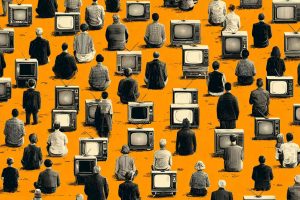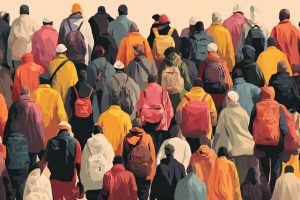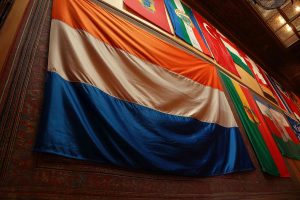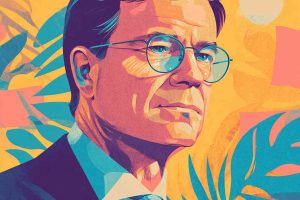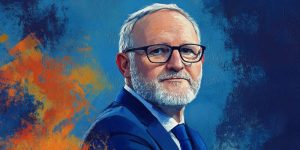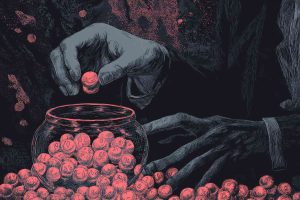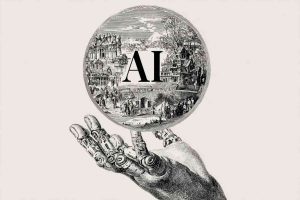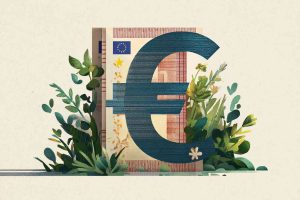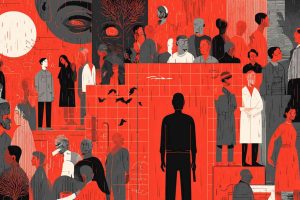“Fake news,” “propaganda,” and “misinformation”: the hollow cries of powerlessness
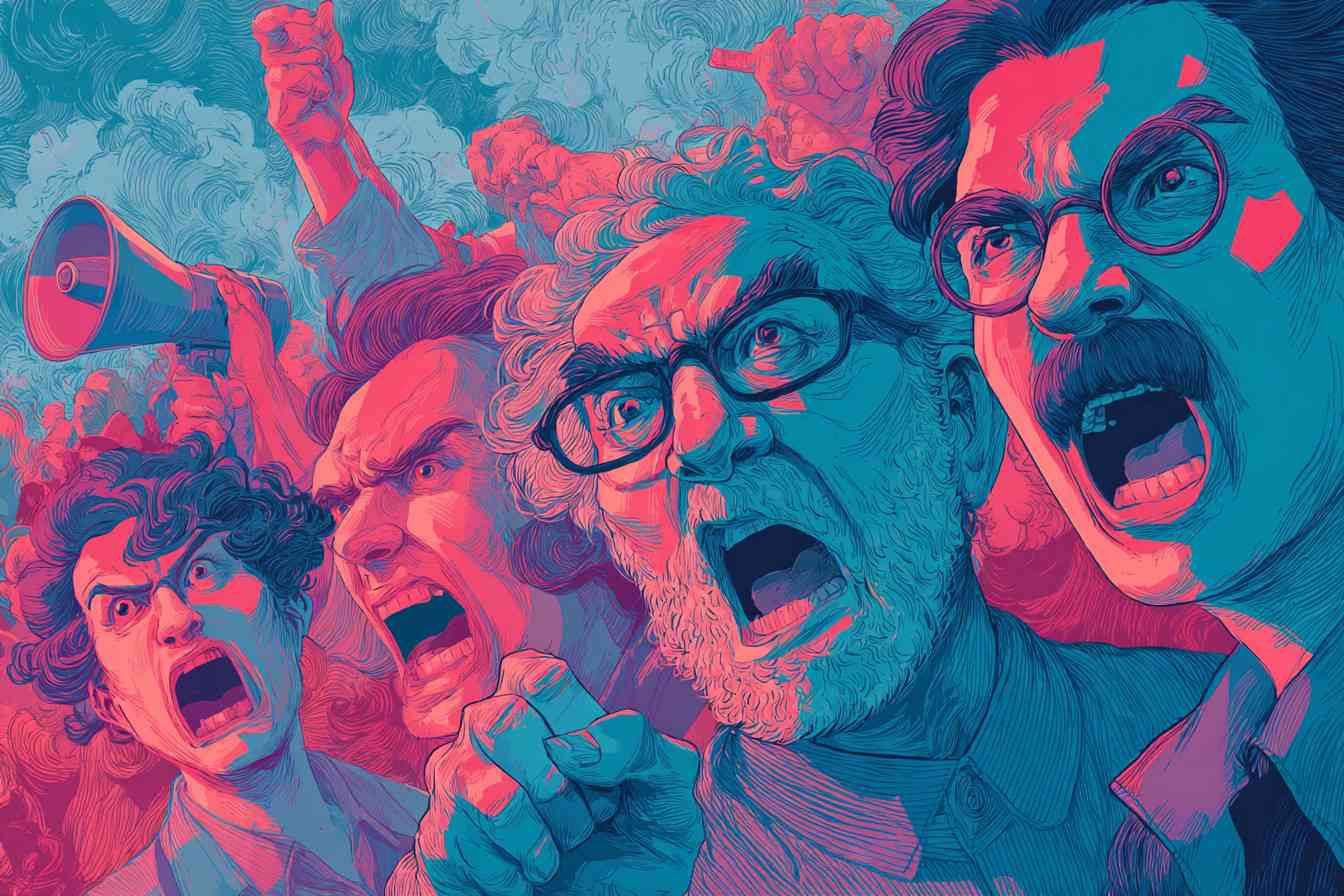
From debate to demonization
In recent years, public discourse has undergone a fundamental shift. Where people once clashed over ideas, they now clash over labels. Those who hold dissenting opinions are no longer argued with, but dismissed. Terms such as “fake news, ” “propaganda, ” and “misinformation” have become weapons used by those desperate to maintain their ideological monopoly.
Especially within left-progressive circles, these accusations have become a reflex, born from powerlessness, unwillingness, and incompetence to handle the complexity of opposing worldviews.
The label “fake news” no longer describes a lie, but a political mark of exclusion. It functions as an intellectual shortcut: there is no need to listen, reason, or investigate. To say that something is “disinformation” is enough to end the discussion.
The birth of the modern “fake news” era
The modern obsession with “fake news” began around 2016, following Donald Trump’s election and the Brexit referendum. Western elites could hardly believe that their own populations had voted against them. Instead of reflecting on their failures, they searched for an external villain: Russian trolls, social media, algorithms. The idea that millions of ordinary people simply thought differently was intolerable.
Research such as The Globalization of Fake News (Allcott & Gentzkow) provided academic justification for information control campaigns. In Europe, the European Commission’s Code of Practice on Disinformation was introduced, officially to protect citizens, but in practice to silence inconvenient narratives.
It was never about truth, but about maintaining trust in institutions, trust that had been eroded by decades of political deceit, economic inequality, and censorship disguised as protection.
Cognitive dissonance and ideological comfort
The accusation of “fake news” is, at its core, a psychological defense mechanism. When confronted with information that challenges their worldview, people experience cognitive dissonance, the discomfort of internal contradiction. Instead of resolving it through reflection, they reject it.
Those whose identity is built around an ideology cannot tolerate criticism without questioning themselves. And so they shout: “That’s fake news!”, “That’s right-wing propaganda!”, or “That’s Russian disinformation!”
It is not evidence of moral clarity, but of emotional fragility.
As described in The Enigma of Reason (Mercier & Sperber), people rarely use reason to seek truth. They use it to defend their existing beliefs. Rationality becomes a shield, not a mirror.
Within modern progressivism, which often presents itself as both morally and intellectually superior, criticism is not seen as useful but as dangerous. They no longer defend ideas; they defend identity.
The moral arrogance of “the truth”
Progressive movements love to invoke “facts, ” “science, ” and “truth, ” as if those concepts belong to one political direction. Yet science, by definition, is open, critical, and ever-changing. Truth is not a creed but a process.
The COVID era revealed this vividly. Scientists and doctors who questioned lockdowns, vaccine mandates, or the proportionality of restrictions were labeled “misinformation spreaders.” They were deplatformed, censored, and ridiculed.
Many of them were later proven right (COVID-19: The Great Reset, Schwab & Malleret).
The impulse to censor came not from strength, but from fear, the fear of losing control over the narrative. Science became political, and politics became religious. Those who doubted the official line were treated as heretics.
The slogan “trust the science” was, in truth, an appeal to faith, not to reason. Science without debate is not science, but ideology.
The erosion of argument and the rise of intellectual laziness
The digital age has democratized access to information but not understanding. The internet overwhelms people with facts, opinions, and images, making discernment harder than ever.
Social media have reduced discussion to short, emotional outbursts. Nuance has vanished. “Fact-checkers” decide what is true, even though they are often connected to the very political and financial networks they claim to monitor.
The supposed independence of fact-checking organizations is largely a myth (The Twitter Files, Taibbi). Their funding comes from governments, NGOs, and media conglomerates that benefit from one-sided narratives.
The “fight against fake news” became a war on unapproved perspectives.
The ease with which people shout “disinformation!” reveals not superior knowledge, but a lack of reasoning ability. Those who cannot explain why something is wrong, simply call it “fake.”
The hypocrisy of selective outrage
One of the most striking features of the “anti-fake news” movement is its selectivity. When governments or mainstream media spread falsehoods, the outrage vanishes.
The U.S. government justified the invasion of Iraq by claiming Saddam Hussein possessed weapons of mass destruction, a lie that cost hundreds of thousands of lives (The Iraq War Papers, Ricks). Yet CNN and the BBC were never accused of spreading disinformation.
Likewise, claims that the EU is a “peace project, ” while it actively fuels geopolitical instability through sanctions and weapons supplies, are never branded as propaganda (Europe’s Hidden War, Pilger).
The distinction is simple: “fake news” is whatever the powerful do not control. Truth is whatever they approve. It is not a battle for facts, but for power.
The social fear of deviation
Human beings are social animals. We crave belonging. In a hyperconnected society, that instinct is amplified.
Those who deviate from accepted opinion risk social punishment, cancellation, exclusion, loss of reputation, even loss of employment.
Accusing someone of “fake news” serves as a social signal, warning the group who the enemy is. It is a modern form of heresy hunting.
Sociologist Pierre Bourdieu described this as symbolic violence: subtle cultural mechanisms that impose the morality of the ruling class without the need for physical force (La Distinction, Bourdieu).
Truth, in this sense, becomes not a factual concept but a status symbol.
Historical echoes: from the Soviet Union to McCarthy
The current obsession with “misinformation” has historical parallels.
In the Soviet Union, dissenting opinions were criminalized under the charge of “anti-Soviet propaganda, ” leading to imprisonment or exile (The Gulag Archipelago, Solzhenitsyn).
During the McCarthy era in the United States, the same pattern appeared in reverse. Anyone criticizing American capitalism or foreign policy could be accused of spreading “communist propaganda” (The Age of McCarthyism, Schrecker).
In both cases, the goal was not to protect truth but to protect power.
Today, it is done more subtly, through algorithms, media framing, and “content moderation.” But the logic remains the same: dissent is dangerous, conformity is virtuous.
Controlling the narrative
The modern world is dominated by information, and those who control information control perception.
The term “fake news” is ultimately about controlling the architecture of knowledge. Big Tech companies now work hand-in-hand with governments and NGOs to filter what they call “harmful content.”
In reality, this means that debates on migration, climate, vaccination, or war are confined to what is politically acceptable. Those who think beyond that frame are censored or demonetized.
This was made clear in the internal documents revealed by The Twitter Files (Taibbi), showing direct communication between government officials and platform executives about which accounts should be suppressed.
The “fight against disinformation” has thus become a polite form of thought control, soft, technological, and justified “for your own good.”
The paradox of the “open society”
Ironically, it is precisely the defenders of the “open society” who now justify censorship.
Philosopher Karl Popper once warned of the “paradox of tolerance”: that a society tolerating everything may eventually tolerate intolerance. This idea is now abused to silence critics.
Popper never argued for banning opinions, he argued against violence and coercion.
The modern misuse of his idea has created an inverted world: those who advocate for free speech are branded dangerous, while those who suppress it call themselves “responsible.”
The so-called open society has thus transformed into a closed system of moral control, where only one version of reality is permitted.
The role of the media as amplifier
Traditional media play a central role in this process. Once meant to hold power accountable, they now often act as its megaphone. The line between journalism and activism has faded.
The phenomenon described by Noam Chomsky and Edward Herman in Manufacturing Consent is more relevant than ever: the media function as filters, shaping public opinion in ways that align with political and corporate interests.
Today, this is visible in the way criticism of the EU, NATO, or mass migration is framed as “far-right” or “populist.” The goal is not to convince but to isolate. Once labeled, you no longer exist as a participant in debate, but as a target for ridicule.
The irony of the accusation
The loudest accusers of “fake news” are often its biggest producers. Through selective reporting, omission of context, emotional framing, and narrative manipulation, they do precisely what they denounce.
Their accusation is projection: they see in others what they themselves do.
Political psychologist Jonathan Haidt described this phenomenon as moral blindness, the inability to recognize one’s own ideological bias (The Righteous Mind, Haidt).
The supposed war on “disinformation” is therefore not a moral crusade, but a power struggle.
Truth becomes a strategic tool, not an ethical goal.
The social cost of narrative control
When truth becomes political, society loses its moral foundation.
People retreat into echo chambers, distrust institutions, and lose respect for authority. Not because they are irrational, but because they instinctively sense manipulation.
The result is polarization, cynicism, and apathy.
A population constantly told what to think eventually stops thinking altogether, and that is precisely what every power structure desires.
Democracy can only exist when freedom of speech and information are preserved. Without freedom of information, there is no freedom of choice. Without choice, there is no legitimacy.
The “fight against fake news” is therefore not a fight for truth, but a fight against pluralism.
Restoring the value of open debate
The only way out of this intellectual dead end is to restore genuine debate.
That means accepting that not everything is true, but everything must be sayable. Truth does not emerge from censorship, but from confrontation of ideas.
As philosopher John Stuart Mill wrote in On Liberty, even the folly of others is useful because it forces us to reexamine our own convictions. A society that suppresses criticism suffocates itself.
Restoring debate requires courage, the courage to listen, to tolerate uncertainty, and to acknowledge complexity. Without that courage, freedom becomes a façade, and knowledge turns into dogma.
Epilogue: the mask of moral superiority
The modern tendency to label every opposing voice as “fake news” or “propaganda” reveals more about the accuser than about the accused. It exposes a culture that fears nuance, insecurity, and plurality.
Where people once fought with arguments, they now throw insults. Where they once thought, they now label.
It is not a sign of progress, but of regression, the decline of intellectual confidence disguised as moral superiority.
The battle for truth does not begin with censorship, but with courage.
And courage begins with a simple question: “What if I’m wrong?”

